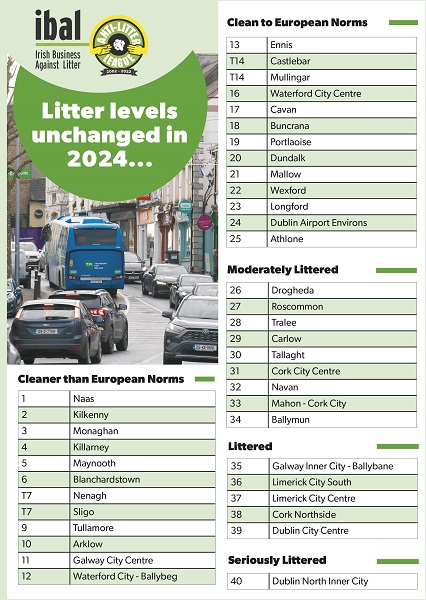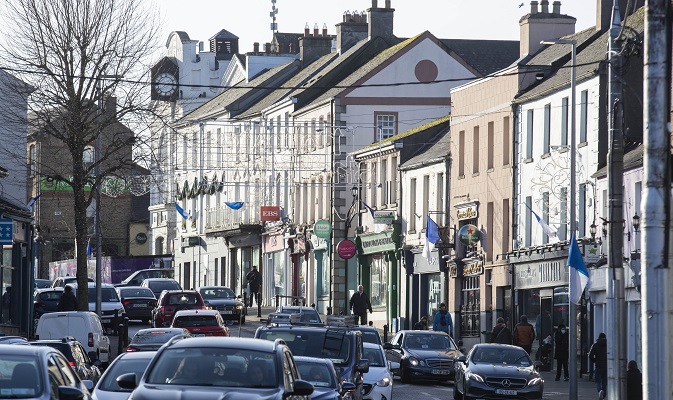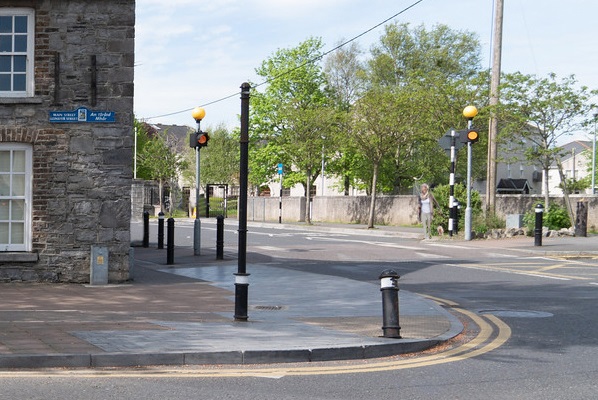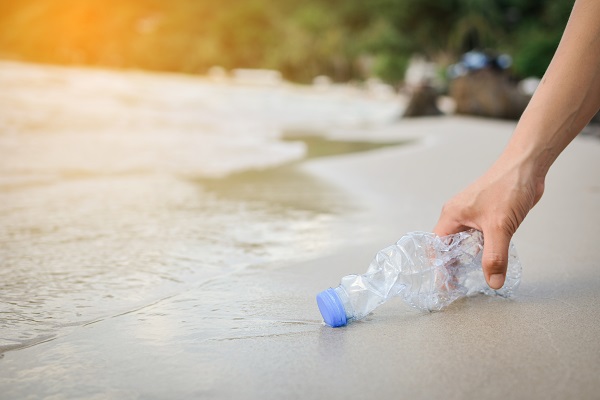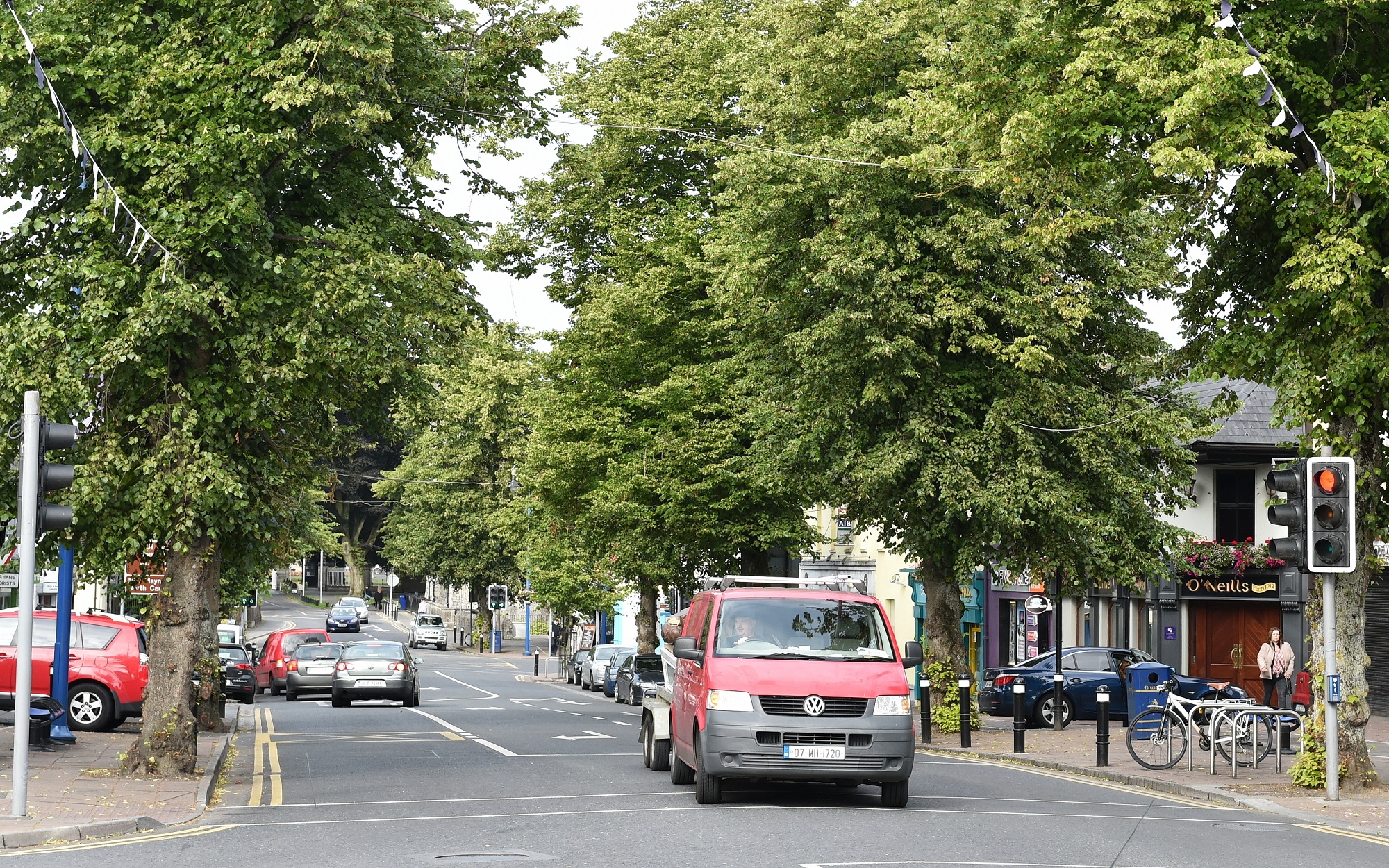
Nationwide litter levels static despite success of Deposit Return Scheme
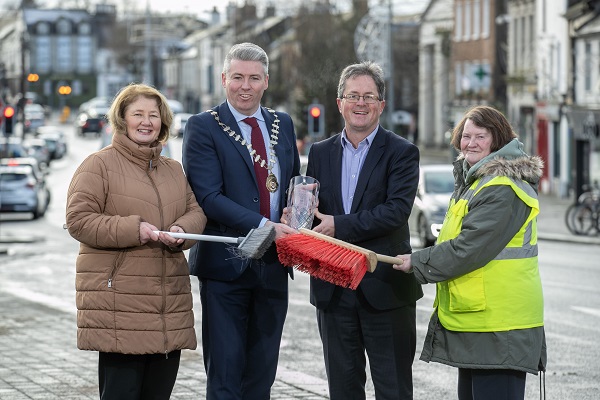
- Poor showing in Dublin “highlights case for proper enforcement of bin bag ban”
- Naas regains crown as cleanest town
- Incoming government “needs to maintain momentum on anti-litter measures”
6 January, 2025 – A fall in plastic bottles and cans on our streets, brought about by the Deposit Return Scheme (DRS), was not enough to reduce overall litter levels in Ireland last year. That is the finding of business group Irish Business Against Litter (IBAL), whose latest survey of 40 towns and cities shows Naas as the cleanest town, but Dublin North Inner City bottom of the pile, with Dublin City Centre deemed ‘littered’, just one position above it.
Overall litter levels were on a par with 12 months ago. Naas finished atop the rankings for the 3rd time in 4 years, ahead of 5-time victor Kilkenny and Monaghan town. An Taisce, who conduct the surveys on behalf of IBAL, praised Naas on an achievement ‘that didn’t happen overnight” and cited the recently opened Naas Plaza among many sites that were “spotless”.
In all 60% of the towns and cities surveyed were deemed ‘clean’. Galway replaced Waterford as the cleanest city, but city areas occupied all but one of the bottom 10 places in the IBAL league table, despite some improvement in Limerick and Mahon in Cork. ‘Littered’ Ballybane in Galway and Dublin City Centre deteriorated year-on-year, while Dublin North Inner City was the only area to be branded ‘seriously littered’.
According to the inspectors, “vast quantities of loose food and alcohol related litter had been discarded” near Emmet Road in Dublin, while Sherrard Street Upper in the Inner City suffered from “bags of domestic rubbish, the contents of which have been ripped open and scattered about”. Another blackspot was Crinian Strand, a short stretch of residential housing “with large household items e.g. mattresses / furniture discarded along the pavement, along with at least a dozen black sacks of rubbish – the contents of which were being scavenged by seagulls.”
“These findings strengthen the case for the ban on bag bins in Dublin City,” says Conor Horgan of IBAL. “We’ve been saying for years that the use of bags for waste collection has been an impediment to progress in the Capital on a number of fronts. The ban can bring about a step change, but its impact will hinge on proper enforcement.” The ban came into force in south inner city last week, with an extension north of the Liffey planned for the summer.
On a positive note, 2024 saw a further fall in the number of sites within cities and towns that were deemed ‘litter blackspots’, which suggests that local authorities were generally more effective in tackling urban dumping and in addressing sites that IBAL had previously highlighted.
The survey also revealed a near-50% fall in the prevalence of plastic bottles and cans in the 500+ sites monitored since the Deposit Return Scheme was introduced last year.
“We are definitely seeing cans and bottles disappear from our streets, which is very welcome – not only are they unsightly, but the bottles contribute to the very real problem of plastic pollution. However, it is clear from our survey that people continue to discard a wide range of litter types with flagrant disregard for their surroundings,” says Conor Horgan. Sweet wrappers and fast-food wrappers were the most common litter types, ahead of plastic bags and coffee cups, which were present in over 20% of sites.
“The DRS was one of a number of structural measures broached by the last government as part of its environmental agenda, with knock-on benefits in terms of litter. A ban on disposable vapes and a coffee cup levy were others.
“The need for such measures is evident in the stubbornly low penetration levels of refillable coffee cups and the proliferation of highly damaging vape litter, which cannot be recycled. If we are to see sustainable improvement nationwide, it is important that the incoming regime maintain the momentum on anti-litter legislation.”
Killarney, which outlawed disposable coffee cups in 2023, was one of the most improved towns last year, rising from 14th to 4th in the rankings. “Given the evident success of this initiative in Killarney, it is perplexing why other towns have not yet followed suit,” commented Conor Horgan.
The Dr. Tom Cavanagh Memorial Trophy will be presented to the Cathaoirleach of County Kildare Cllr. Kevin Duffy at Naas Library & Cultural Centre at noon today.
ENDS
